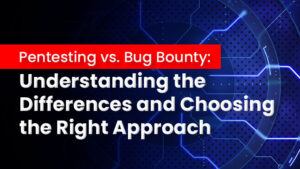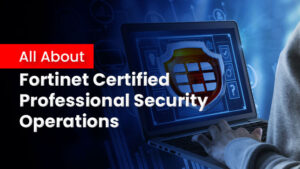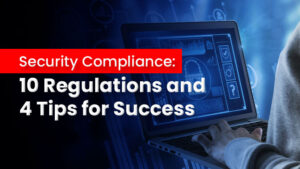Introduction
When ransomware or an encryption Trojan infects your computer, it encrypts your files or locks them down. When ransomware seizes a “digital hostage,” such as a file, it demands a ransom in exchange for its release. It’s critical to be prepared if you ever find yourself in front of a locked laptop or an encrypted file. We will learn how to avoid a ransomware attack in this blog.
Ransomware assaults have increased considerably in recent years. Ransomware is a virus that encrypts data and prevents infected systems from being used until the ransom is paid (usually in some cryptocurrency).
There are several explanations for this, but two stick out. To begin with, cryptocurrency’s widespread use and lack of regulation make it simple to demand non-traceable cash. The second reason is that it is effective. Companies large and small worldwide are paying ransom to regain access to their data, and other threat actors will be encouraged to undertake ransomware assaults as a result of this.
While giant firms that have been victims of ransomware make the news, many more small and medium-sized businesses are victims of ransomware every day.
If you’re interested in learning about Cybersecurity, then IPSpecialist is the best place to learn. IPSpecialist is an e-learning portal that provides online training and career advice to assist you in your career.
Several things could make you a ransomware target. These include:
- The technology employed is no longer cutting-edge
- The software on the gadget is old
- There are no longer any patches for browsers or operating systems
- There is not a good backup strategy
- Cybersecurity has received insufficient attention, and no solid plan has been put in place
How To Avoid Getting Infected From Ransomware Attack
-
Never click on unsafe links
It is recommended not to click on links in spam messages or websites you are unfamiliar with. An automated download may begin when you click on malicious links, potentially infecting your machine.
-
Avoid disclosing personal information
Avoid responding to calls, text messages, or emails from an unknown source demanding personal information. Cybercriminals launching a ransomware assault may try to gather personal information ahead of time. The data can then be used to customize phishing messages to you precisely. If you have any doubts about the message’s authenticity, contact the sender directly.
-
Do not open any suspicious email attachments
Email attachments can also infect your PC with ransomware. Any attachments that look suspicious should be avoided. To confirm that the email is trustworthy, pay close attention to the sender and double-check that the address is correct. Avoid opening attachments that require you to run macros to view them. If the attachment is infected, opening it will trigger a malicious macro, allowing malware to take control of your computer.
-
Never use unknown USB sticks
Do not attach a USB stick to your computer if you do not know where the pen drive or another storage media originated. It is possible that cybercriminals contaminated the storage medium and left it in a public place to attract someone to use it.
-
Keep your programs and operating system up to date
Updating your apps and operating systems regularly helps to keep you safe from malware. Make sure you are getting the most recent security patches when you update. Doing this makes it difficult for criminals to take advantage of software faults.
-
Use VPN services on public Wi-Fi networks
Using public Wi-Fi networks with caution is a good way to protect yourself from ransomware. Your PC is more exposed to assaults while connected to a public Wi-Fi network. Avoid public Wi-Fi for critical transactions or use a secure VPN service to stay safe.
-
Use only known download sources
Never download software or media files from unfamiliar sources to avoid being infected with ransomware. For downloads, stick to sites that are verified and reputable.
Anti-Ransomware Software
In addition to these infection-prevention methods, using appropriate software to protect against ransomware is also critical. Using virus scanners and content filters on your mail servers, for example, is an excellent method to keep ransomware at bay. Spam with dangerous attachments or corrupted URLs is less likely to reach your inbox.
Kaspersky Internet Security, for example, should be installed. When you download or stream something, this software can detect and block infected files, giving you real-time protection. Doing this keeps fraudsters away while preventing ransomware from infiltrating your PC. Kaspersky also has a dedicated anti-ransomware product. By performing scans, the program assists in detecting and blocking ransomware and protecting your data from both local and distant ransomware attacks.
Company Protection Against Ransomware Attacks
Ransomware assaults are not just a problem for people. Companies are frequently attacked as well. Ransomware targets not only huge, profitable businesses; it targets Small and Medium-sized Enterprises (SMEs) too. They typically have weak security systems, making them particularly appealing to attackers. A list of things that enterprises should consider to avoid being infected by ransomware is provided below
Maintain constant access to the most recent operating software, even in the workplace.
When it comes to protecting against threats, someone who knows what to look out for will be more effective. Implement a security method that allows employees to assess if an attachment, link, or email is trustworthy.
The advantage of cloud-based designs over on-premise systems is that vulnerabilities are more difficult to exploit. You can also restore older versions of your files using cloud storage options. This means that if your data have been encrypted by ransomware, you should be able to restore them using cloud storage.
It is necessary to regularly back up business-critical data to external devices, even in business situations. This critical task’s responsibility should be identified and explained.
Conclusion
Ransomware assaults exist in various shapes and sizes, and they take many different forms. The attack vector has an impact on the type of ransomware used. When determining the extent and scope of an attack, it is critical to consider what is at stake or what data could be wiped or disseminated. Storing up data and properly implementing security measures can significantly lessen the impact of an attack.







